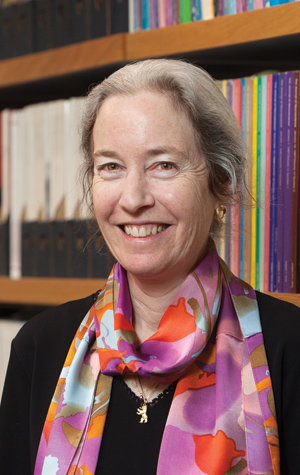NSF Funds State-of-the-art MRI Scanner
$1.6 million from NSF for centerpiece of new Center for Cognitive Neuroimaging

The Siemens 3 Tesla Magnetic Resonance Imaging scanner will be housed within the new Center for Integrated Life Sciences & Engineering building, on BU’s Charles River Campus. Photo courtesy of Siemens Healthineers
The National Science Foundation (NSF) has awarded Boston University researchers $1.6 million for a state-of-the-art Siemens 3 Tesla Magnetic Resonance Imaging (MRI) scanner, a fundamental tool for studying the brain and the centerpiece of a new Center for Cognitive Neuroimaging at BU. Chantal Stern, a BU College of Arts & Sciences (CAS) professor of psychological and brain sciences who will be the director of the new imaging center, is the principal investigator on the NSF grant. The imaging center will be housed in BU’s new Center for Integrated Life Sciences & Engineering (CILSE), scheduled to open in spring 2017, which is intended to foster multidisciplinary, collaborative work among researchers from neuroscience, engineering, biological design, computational and computer science, and other fields in schools and colleges across the University.
“This award signals recognition by our peers and the NSF not only of the quality of our faculty and the work they are doing,” says Vice President and Associate Provost for Research Gloria Waters, “but also that our vision of bringing together interdisciplinary teams—with the Center for Integrated Life Sciences & Engineering as the hub—will allow us to address the grand challenge of understanding the brain in unique ways.”
The scanner will be used to advance research in BU laboratories focusing on the mechanisms and networks that support memory, attention, visual and auditory perception, navigation, and decision-making in the human brain. It will also be used by faculty who are pursuing basic research in human auditory neuroscience, speech production, and communications.

联合国
在
One of the shared goals of the Center for Systems Neuroscience and the new Center for Cognitive Neuroimaging is to better understand how different regions and networks of the brain interact and communicate with each other and how these brain systems relate to cognition and behavior. Reaching this goal will require multidisciplinary collaboration among scientists using cutting-edge experimental research methodologies, including advanced neuroimaging technology and other computational tools, says Stern. BU neuroimaging faculty, she adds, have developed strong collaborations that bridge the gap between animal, computational, and human research. In her proposal to the NSF, Stern noted that the new MRI scanner and its placement within CILSE “will foster neuroscience research that does not adhere to the traditional human-animal divide, allowing the development of models that link the understanding of neural circuits to cognition and behavior.”

Comments & Discussion
Boston University moderates comments to facilitate an informed, substantive, civil conversation. Abusive, profane, self-promotional, misleading, incoherent or off-topic comments will be rejected. Moderators are staffed during regular business hours (EST) and can only accept comments written in English. Statistics or facts must include a citation or a link to the citation.